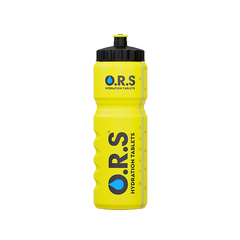What Are The Dangers Of Low Electrolyte Levels?

Electrolytes are minerals that occur naturally in the body, and are also derived from our food and drink intake. When dissolved in bodily fluids such as blood, sweat, and urine, they give off an electrical charge and play an essential role in the functioning of the body. Here’s a look at what electrolytes do, and what happens when they become out of balance.
Which electrolyte particles are found in the body?
The electrolytes in the human body are present in minerals including calcium, potassium, magnesium, phosphate, sodium, and chloride. These all help to aid vital functions such as hydration, the nervous system, and muscle contraction.
What happens when you have an electrolyte deficiency?
When we do not have enough of these minerals, the body is thrown out of balance, and it may result in a range of symptoms. These include muscle cramps, headaches, nausea, diarrhoea or constipation, confusion, and numbness in the limbs and extremities.
What are the causes of low electrolyte levels in the body?
Electrolyte imbalances can occur for a variety of reasons. In some cases, it may be due to a serious illness such as cancer, heart disease, kidney disease, high blood pressure, or prescription medications. If you suspect that any of these reasons may be the cause of symptoms, it’s important to get them checked out by a doctor.
Dehydration can also cause an electrolyte deficiency. This can occur after excess sweating such as during or after exercise, especially in hot weather. It may also be caused through prolonged episodes of vomiting or diarrhoea, or through an overly restrictive diet or disordered eating habits.
Electrolytes rely on water to move around the body and be carried to the vital organs, so if the body is dehydrated, then the previously mentioned symptoms will occur. Sodium chloride plays an important role in controlling the fluid levels of the body, so it is not enough to simply drink more water when we are dehydrated.
How can you correct low electrolyte levels?
If you have established that there is no serious underlying medical cause for your symptoms, then it is possible to treat electrolyte deficiency yourself. If you have lost electrolytes through heavy sweating or an episode of vomiting and/or diarrhoea, then it is recommended to replace them through an electrolyte drink or oral rehydration salt (ORS) solution.
Beware of sports drinks that are formulated to aid rehydration, because while they may be effective, they often contain added glucose and other ingredients that can spike your blood sugar levels and lead to unwanted calorie intake.
The safest way to fully restore your hydration levels is to use a rehydration tablet that can be dissolved in water. This way, you will know that you are consuming only what your body needs without any other unnecessary additives.
If you are looking for ORS immune, please visit our website today.

